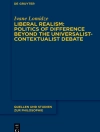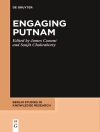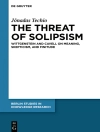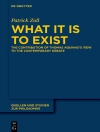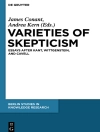This volume, the result of an ongoing bridge building effort among engineers and humanists, addresses a variety of philosophical, ethical, and policy issues emanating from engineering and technology. Interwoven through its chapters are two themes, often held in tension with one another: “Exploring Boundaries” and “Expanding Connections.” “Expanding Connections” highlights contributions that look to philosophy for insight into some of the challenges engineers face in working with policy makers, lay designers, and other members of the public. It also speaks to reflections included in this volume on the connections between fact and value, reason and emotion, engineering practice and the social good, and, of course, between engineering and philosophy. “Exploring Boundaries” highlights contributions that focus on some type of demarcation. Public policy sets a boundary between what is regulated from what is not, academic disciplines delimit themselves by their subjects and methods of inquiry, and professions approach problems with unique goals and by using concepts and language in particular ways that create potential obstacles to collaboration with other fields. These and other forms of boundary setting are also addressed in this volume.
Contributors explore these two themes in a variety of specific contexts, including engineering epistemology, engineers’ social responsibilities, engineering and public policy-making, engineering innovation, and the affective dimensions of engineering work. The book also includes analyses of social and ethical issues with emerging technologies such as 3-D printing and its use in medical applications, as well as social robots. Initial versions of the invited papers included in this book were first presented at the 2014 meeting of the Forum on Philosophy, Engineering, and Technology (f PET), held at Virginia Tech in Blacksburg, Virginia, USA. The volume furthers f PET’s intent of extending and developing the philosophyof engineering as an academic field, and encouraging conversation, promoting a sense of shared enterprise, and building community among philosophers and engineers across a diversity of cultural backgrounds and approaches to inquiry.
表中的内容
Chapter 1. Introduction; Diane Michelfelder, Byron Newberry, Qin Zhu.- Chapter 2. Is Technology a Science? Recent Developments in German Philosophy of Technology and Engineering; Klaus Kornwachs.- Chapter 3. Pragmatism and Engineering (note: this will be a commentary by William Bulleit on Chapter 2).- Chapter 4. Evidence in Engineering; Eric Kerr.- Chapter 5. The Role of Engineering in Undermining the Perennial Philosophy; Joe Pitt.- Chapter 6. On the Interpretation of Engineering Safety Issues; Dazhou Wang.- Chapter 7. The Limits of Logic Based Safety of Social Robots; Martin Bentzen.- Chapter 8. Why Installation Failures Can’t be Predicted; Peiqiong Wang.- Chapter 9. Students’ Perceptions of Ethics in a Project Based Team Context; Qin Zhu et.al..- Chapter 10. Ethical and Social Issues of 3-D Printing; Rich Wilson.- Chapter 11. An Historical Perspective on the Epistemology of Break-Through Innovations; Bruce Vojak.- Chapter 12. Interdisciplinarity, Incommensurability, and Engineering in Policy-Making; Natasha Mc Carthy.- Chapter 13. Democracy, Engineering, and Management: Strategies for Policy Engagement with Federal Agencies; Zach Pirtle.- Chapter 14. Rethinking the Responsibilities of Engineers as Accountability; Deborah Johnson.- Chapter 15. Engineers and the Evolution of Society; Erik Aslaksen.- Chapter 16. The Role of Engineers in Open Innovation–Towards a New Understanding of Engineering as a Topical Science; Albrecht Fritzsche.- Chapter 17. In Praise of Emotion in Engineering; Michael Davis.- Chapter 18. Empathy and Ethical Reasoning in Engineering Ethics Education; Justin Hess et.al.- Chapter 19. The Development of New Engineers’ Epistemologies; Devlin Montfort et. al.- Chapter 20. Ethical Presentations of Data: Tufte and the Morton-Thiokol Engineers; Wade Robison.- Chapter 21. 3-Dimensional Printing of Biological Materials and Possible Ethical Implications; Ken Foster and Rich Wilson.- Chapter 22. The Rationality of Ethical Codes in Engineering (the Caseof Dam Construction in China); Zhihui Zhang.- Chapter 23. Pascal’s Wager–Decision Making and Risk Management; William Grimson.- Chapter 24. It’s All About ‘Languaging’; Rick Evans.
关于作者
Diane P. Michelfelder is Professor of Philosophy at Macalester College, USA. Her primary areas of research inquiry are the philosophy of technology and the philosophy of engineering. She has been actively involved in the creation and development of f PET: the Forum on Philosophy, Engineering, and Technology, and has served as the president of the Society for Philosophy and Technology. Currently, she is co-editor-in-chief of that society’s journal, Techné: Research in Philosophy and Technology. Her work has been published in this journal as well as in Science and Engineering Ethics, AI & Society, Philosophy and Technology, Engineering Studies, and Ethics and Information Technology, among others. Along with philosopher Natasha Mc Carthy and engineer David E. Goldberg, she is editor of Philosophy and Engineering: Reflections on Practice, Principles, and Process (Springer 2013).Byron Newberry has a B.S. in Aerospace Engineering from the University of Alabama, along with an M.S. in Aerospace Engineering and a Ph.D. in Engineering Mechanics, both from Iowa State University. He is Professor of Mechanical Engineering at Baylor University and has been designated a Baylor Fellow for teaching. His teaching areas include engineering design, engineering mechanics, engineering ethics, and sustainable engineering. His current research interests include engineering design, engineering ethics, and the philosophy of engineering and technology. He has worked as an aircraft structural engineering consultant, is an Executive Board member of the National Institute for Engineering Ethics, serves on the Steering Committee for the Forum on Philosophy, Engineering, and Technology (f PET), and serves as an Editor of the Springer Philosophy of Engineering and Technology book series.
Qin Zhu is a Postdoctoral Research Associate in the Ethics Across Campus Program and the Division of Liberal Arts and International Studies at Colorado School of Mines, where he is also helping with managing the Daniels Fund Faculty Fellows Program that provides scholarly and grant support for faculty to explore ways to integrate ethics into their applied science and engineering curricula. He has broad teaching and research interests in the ethical, historical-cultural, and policy perspectives of engineering practice and education. His research has drawn on theories, methods, and practices from a wide range of fields including philosophy of technology, engineering ethics, engineering education, and Confucian ethics. His work has appeared in peer-reviewed journals such as Engineering Studies, History of Education, and Technology in Society.




